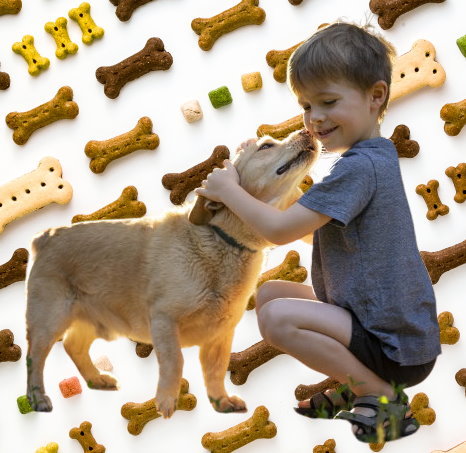Welcome to Dog Training Newbies !
Welcome to Dog Training Newbies !

As our beloved canine companions age, their needs change, and they require extra care and attention to ensure their comfort and quality of life. Caring for a senior dog involves addressing various aspects, including their physical health, mental stimulation, and emotional well-being. In this blog article, we will explore essential tips to help you provide optimal care for your senior dog, ensuring they enjoy their golden years to the fullest.
REGULAR VETERINARY CHECK-UPS
Regular veterinary check-ups are crucial for senior dogs. As they age, they become more susceptible to health conditions such as arthritis, dental issues, vision or hearing loss, and organ dysfunction. Schedule regular visits to your veterinarian for comprehensive examinations, blood work, and screenings to catch any potential health issues early on.
NUTRITION AND WEIGHT MANAGEMENT
Tailoring your senior dog's diet to their changing needs is vital. Opt for a high-quality, age-appropriate dog food that supports their overall health and addresses specific senior-related concerns. Senior diets often contain added nutrients to support joint health, digestion, and cognitive function.
Weight management is equally important. Senior dogs are prone to weight gain, which can exacerbate age-related health problems. Consult with your vet to determine the ideal weight range for your dog and adjust their diet accordingly. Be mindful of portion sizes and avoid excessive treats to maintain a healthy weight.
EXERCISE AND MENTAL STIMULATION
While senior dogs may not have the same energy levels as their younger counterparts, regular exercise is still essential. Tailor exercise routines to your dog's abilities and limitations. Gentle walks, swimming, or low-impact activities can help maintain muscle tone, joint flexibility, and mental stimulation.
Engaging your senior dog in mentally stimulating activities is equally crucial. Puzzle toys, interactive games, and obedience training sessions can keep their minds sharp and prevent cognitive decline. Adjust the intensity and duration of activities to suit your dog's individual needs and always monitor for signs of exhaustion or discomfort.


PROVIDING COMFORT AND MOBILITY SUPPORT
As dogs age, they may experience mobility issues due to arthritis or other joint conditions. Provide comfortable bedding that supports their joints and offers relief from pressure points. Consider orthopedic beds or memory foam mattresses to ease discomfort.
Assistive devices such as ramps or stairs can help senior dogs access elevated surfaces, minimizing strain on their joints. Additionally, slip-resistant floor mats or rugs can provide traction and prevent slipping or falling on smooth surfaces.
DENTAL CARE AND HYGIENE
Maintaining good dental hygiene is essential for senior dogs to prevent periodontal disease, which can lead to pain, tooth loss, and systemic health issues. Brush your dog's teeth regularly using a toothbrush and toothpaste designed for dogs. Incorporate dental treats or toys that help reduce plaque buildup.
Regular grooming is equally important. Senior dogs may require more frequent brushing to prevent matting and skin issues. Pay attention to their ears, eyes, and nails as well. Regularly check for any signs of infection, inflammation, or abnormalities and consult your vet if necessary.
EMOTIONAL WELL-BEING AND QUALITY TIME
Senior dogs thrive on love, attention, and companionship. Spend quality time with your dog, engaging in activities they enjoy. Gentle petting, massage, and belly rubs can provide comfort and strengthen your bond. Consider incorporating calming activities such as aromatherapy or classical music to create a soothing environment.
Monitor your dog's behavior and mood closely. Changes in appetite, sleep patterns, or social interactions may indicate underlying health issues or discomfort. Open communication with your veterinarian is crucial to address any concerns and ensure your senior dog's emotional well-being.
Caring for a senior dog requires a thoughtful and compassionate approach. By prioritizing regular veterinary check-ups, tailoring their nutrition and exercise routines, providing comfort and mobility support, and addressing their emotional well-being, you can enhance their comfort and quality of life in their golden years. Cherish the moments you have with your senior companion, and their unwavering love and loyalty will continue to enrich your lives together.